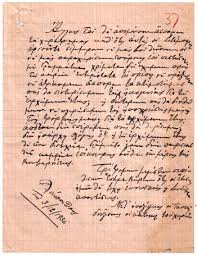
Re Bennett Estate 2023 BCSC 559 discussed the presumption of revocation, where the original will of the deceased had been lost, and in an application for directions, ordered that a copy of the will could be probated as there was no evidence that the original will was last in the possession of the deceased so s to invoke the presumption.
The court found that the copy of the will represent of the testamentary intentions of the deceased.
The Presumption of Revocation
The presumption of revocation was explained as follows by Wilson J. in Haider v. Kalugin, 2008 BCSC 930
[9] If a Will last known to be in custody of testator is not found at his death, the presumption is that the testator destroyed it with the intention of revoking it (“animo revocandi”). However, that presumption may be rebutted by evidence, written or oral, of the facts. The strength of the presumption will depend upon the character of the custody which the testator had over the Will: Sugden v. Lord St. Leonards (1876), 1 P.D. 154 (English C.A.).
[10] In Sigurdson v. Sigurdson [1935] 2 D.L.R. 445 (S.C.C.), at paragraph 49, Davis J. said:
[49]1 It needs very clear and convincing evidence to establish what is alleged to be a lost will. . . .The person propounding such a will has a burden of proof that persists throughout the whole trial to satisfy the court at its conclusion that the will is in fact lost and was not destroyed by the testator with the intention of putting an end to it. Each case of course turns upon its own facts but the principles respecting the well-settled presumption against the Will must be applied to the facts.
[11] In Welch v. Phillips (1836) 1 Moo PC 299, at 302, referred to in Bobersky Estate (Re) [1954] A.J. No. 12 (Alta Dist. Crt.), at paragraph 6, the court said:
[6] If a will traced to the possession of the deceased, and last seen there, is not forthcoming on his death, it is presumed to have been destroyed by the deceased himself; and that presumption must have effect, unless there is good and sufficient reason to repel it. It is a presumption founded on good sense, for it is highly reasonable to suppose that an instrument of so much importance would be carefully preserved, by a person of ordinary caution, in some place of safety and would not be either lost or stolen, and if, on the death of a maker, is not found in his usual repositories or else where he resides, it is in a high degree of probable that the deceased himself has purposely destroyed it. But this presumption, like all others of fact, may be rebutted by others, which raises a higher degree of probability to the contrary.
Haider was considered. in Whitehead Estate, 2010 BCSC 348 [Whitehead].
At para. 28, the Court concluded that there was no evidence upon which it could conclude that the will of the deceased was properly executed or a true copy of the original will.
At para. 29, the Court went on to consider what the situation would be if that conclusion was incorrect, and the will was properly executed and a true copy. The Court stated that in that case:
… the next issue is whether the original will can be traced to the possession of the deceased. If it can be traced to her possession then on a finding that the original has been lost, the presumption arises that it has been destroyed with the intention of revoking the will.
After referring to Haider at para. 30, the Court in Whitehead concluded at para. 31:
On the evidence presented in this case, I am not able to find that the deceased ever had possession of the original will and therefore the presumption that the will has been destroyed with the intention that it be revoked does not apply.




